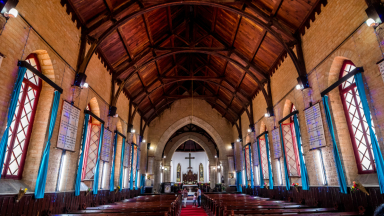
Religious freedom for Christians continues to decline in India, with the latest news being that the northern state of Uttarakhand has amended the punishment for breaching its anti-conversion law to include up to life imprisonment.
Anti-conversion laws in India are theoretically meant to prevent people from using force or coercion to change a person’s religion. In practice they are used to prevent people from leaving Hinduism.
According to the amended law in Uttarakhand, using social media or other online technology to promote conversion is now an offence, as is the use of any foreign funding in a conversion. Criticising one religion and praising another may also fall foul of the law.
One anonymous Christian in India, who partners with anti-persecution charity Open Doors, said of the updated law, “This newly amended bill is a huge threat for ordinary Christians. The simplest act of kindness to another person can be seen as an ‘inducement’ to convert them and they can be punished severely.”
They continued, “Several Hindutva-led state governments are amending their anti-conversion laws including Uttar Pradesh and Chhattisgarh. Hindutva nationalists are misusing these laws and attacking Christians and churches. With such stringent laws, following Christ in India comes with painful consequences.”
Hindutva refers to a form of Hindu nationalism, which essentially claims that to be Indian is to be Hindu.
Local Christian groups have opposed the amended law, saying they are discriminatory, an infringement on religious liberty, and will be used to harass Christians and stoke community tension.
While the amended law has not yet passed - requiring approval from the governor - this is expected to be forthcoming.
Despite its reputation as the “world’s largest democracy”, religious freedom in India is under significant attack. In its annual persecution index this year, Open Doors ranked India as the 11th worst persecutor of Christians in the world, worse than Islamist Saudi Arabia and the military junta in Myanmar.
While unlikely to be persecuted by the state directly, in many places Indian Christians are at risk of mob violence, which the authorities may or may not punish. This is in addition to the various anti-conversion laws which are being used against Christians.













